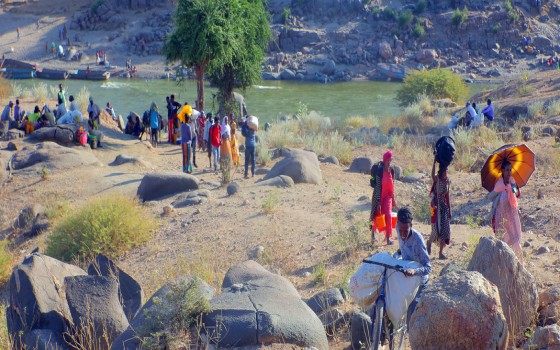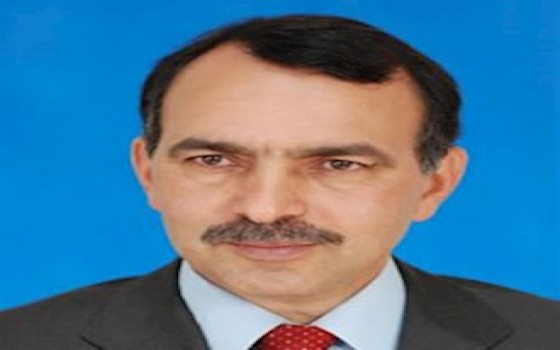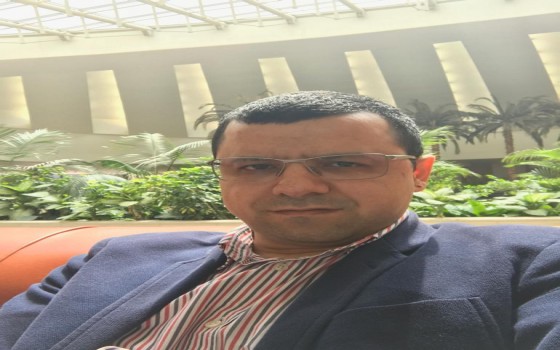
Africa and threats to climate change for its food security

- Europe and Arabs
- Wednesday , 19 October 2022 23:35 PM GMT
Africa is the most prone to climate change because it has a weak ability to face climate change because of its weak ability to adapt and rely on environmental goods to earn a living.
In the middle of Africa, the landlocked region is threatened by climate change and will witness longer and more frequent heat waves with increased humidity, and the average temperature will increase by 1.5 to 2 degrees Celsius.
East Africa is characterized by high temporal and spatial variability of rainfall with a general decrease in seasonal rainfall during the period from March to May and frequent and severe droughts in recent decades. The middle of the century and 2 to 5 °C . If global temperatures rise by 2 °m instead of 1.5 °m, it is likely that temperatures in eastern Africa will rise at a faster rate than the global average.
West Africa has experienced severe droughts, with devastating effects in the Sahel region and a moderate increase in annual rainfall since the early 1990s, and the total annual rainfall is still much lower than before the big drought.
Climate change will increasingly affect Africa and its volume will increase if measures are not taken to reduce global carbon emissions. The recent drought in many African countries, which has been linked to climate change, has had a negative impact on energy security and economic growth across the continent.
Agriculture is one of the most exposed sectors to the risks of global climate change, and the agricultural sector in most African countries is relatively small and dependent on rain, and farmers are smallholders with limited capacity to obtain the technology and resources needed to adapt. The variation between years in rainfall, temperature patterns, and extreme weather events (droughts and floods) will increase in the future and is expected to have a significant impact on the agricultural sector, which will negatively affect food prices and food security, and the crops produced by rain-fed agriculture in some African countries will decrease by up to to 50 %
Water quality and availability have deteriorated in most regions of Africa. that water resources are scarce and will be greatly affected by climate change and millions of people in Africa will face increasing pressure on water and changes in rainfall patterns will affect surface water flow and water availability
The economy of these countries depends on sectors that are affected by climate change, such as plant and animal production and the extraction of natural resources, which leads to a decrease in the average annual growth rate in poor areas from 2.6 to 3.2%. African countries must adhere to a set of plans to counter the effects of climate change, such as conserving water and developing other sources, changing agricultural crop plans and using crops that require less water, and turning to renewable energy sources such as solar and wind power, preparing coastal cities to face any rise in sea level, and protecting rare plant and animal species from extinction. و Build a national legal framework for managing food resources in accordance with the expected climate change. But before making a policy to deal with the effects of climate change, especially in the agriculture sector, it should be understood clearly how climate change affects different food crops.
The rate of population growth in Africa will increase from 17% to 40% of the total population of the world by the year 2100, which confirms that it is time for Africa to implement projects to combat the worsening climate and adapt to it. At the top of that is the implementation of the 2030 Sustainable Development Plan, which was adopted by all member states of the United Nations in 2015 to end poverty and achieve climate resilience by 2030, in addition to the implementation of Nationally Determined Contributions, known as "NDCs" for those countries.
The African continent needs a lot of money to implement plans to deal with climate change. Today, Africa needs 1.2 trillion dollars to implement the identified contributions and 1.2 trillion dollars to implement the Sustainable Development Goals. It is necessary to provide support to Africa to implement projects aimed at enhancing climate resilience
Dr. Abdel Moneim Sedky
Professor at Research Center - Egypt












No Comments Found